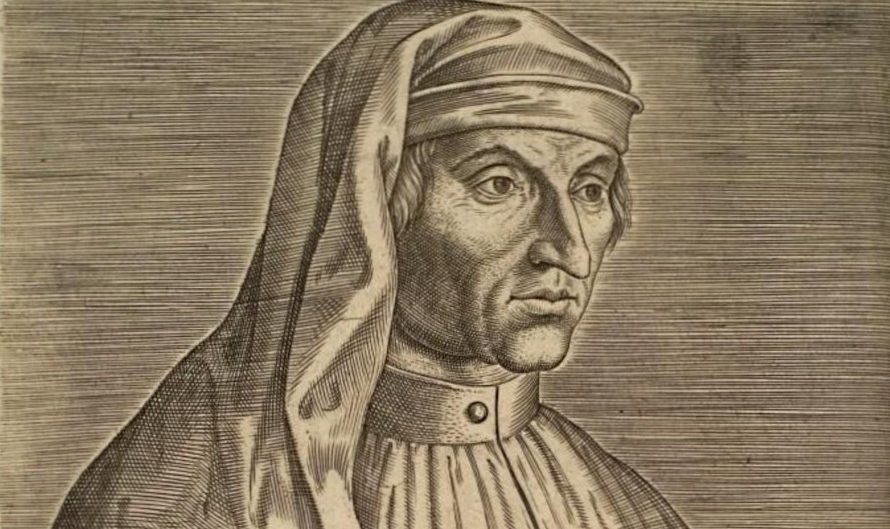Rudolf Agricola (1443-1485): The Life and Legacy of a Dutch Humanist
Rudolf Agricola was a prominent Dutch humanist who lived during the Renaissance era. He was born in Baflo, a small town in the northern part of the Netherlands, in 1443. Agricola is widely known for his contributions to the field of classical scholarship, particularly in the areas of grammar, rhetoric, and logic. He was a prolific writer, producing works in both Latin and Dutch, and his influence was felt throughout Europe during his lifetime and beyond.
In this article, we will delve into the life and legacy of Rudolf Agricola, exploring his upbringing, education, and intellectual achievements. We will also examine his impact on the broader cultural and intellectual landscape of the Netherlands and Europe, and consider his lasting legacy in the present day.
Early Life and Education
Rudolf Agricola was born as Roelof Huysman in Baflo, a small town in the province of Groningen in the northern Netherlands. His parents were both farmers, and it is believed that he received his early education at a local school in Baflo. However, little is known about his childhood or upbringing, and the details of his early life remain shrouded in mystery.
In his teenage years, Agricola moved to the city of Deventer, where he enrolled at the Latin School, a prestigious institution that was renowned for its humanist curriculum. It was here that he first encountered the works of classical authors such as Cicero, Livy, and Seneca, which would have a profound impact on his intellectual development.
After completing his studies at the Latin School, Agricola went on to study at several other institutions, including the University of Erfurt in Germany and the University of Louvain in Belgium. He received a thorough education in the humanities, including grammar, rhetoric, and logic, as well as in theology and law.
Career and Achievements
After completing his education, Agricola returned to the Netherlands, where he began a career as a teacher and scholar. He taught at several schools and universities throughout the country, including the Latin School in Zwolle and the University of Groningen.
Agricola quickly gained a reputation as a leading humanist scholar, and his works were widely read and admired throughout Europe. He was particularly renowned for his expertise in the field of Latin grammar, and his influential treatise De inventione dialectica (On the Invention of Dialectic) became a foundational work in the field of logic.
In addition to his work in the humanities, Agricola was also a skilled musician and composer. He wrote several pieces of music, including a famous hymn in honor of the Virgin Mary, which is still sung in churches throughout the Netherlands today.
Legacy and Impact
Rudolf Agricola’s legacy as a humanist scholar and intellectual is significant, both in the Netherlands and throughout Europe. He was a key figure in the development of the Dutch Renaissance, and his works played a crucial role in shaping the intellectual and cultural landscape of the period.
Agricola’s influence can be seen in the work of many later humanist scholars, including Desiderius Erasmus, who was greatly influenced by his works on Latin grammar and rhetoric. His contribution to the development of the Dutch language and literature is also significant, as he was one of the first writers to use Dutch as a language of scholarship and intellectual discourse.
In the present day, Agricola’s legacy continues to be celebrated in the Netherlands and beyond. Several institutions and organizations have been established in his honor, including the Rudolf Agricola College in Groningen, which is dedicated to the study of the humanities.
FAQs
1. What was Rudolf Agricola’s real name?
Agricola was born as Roelof Huysman and later adopted the name Rudolf Agricola.
2. What was Agricola’s area of expertise?
Agricola was a prominent scholar in the field of classical scholarship, particularly in the areas of grammar, rhetoric, and logic.
3. Where did Agricola receive his education?
Agricola studied at several institutions throughout Europe, including the University of Erfurt in Germany and the University of Louvain in Belgium.
4. What was Agricola’s contribution to the development of the Dutch language and literature?
Agricola was one of the first writers to use Dutch as a language of scholarship and intellectual discourse, and his works played a crucial role in the development of the Dutch Renaissance.
5. What is Agricola’s lasting legacy?
Agricola’s influence can be seen in the work of many later humanist scholars, and his contributions to the fields of grammar, rhetoric, and logic continue to be studied and celebrated in the present day.
